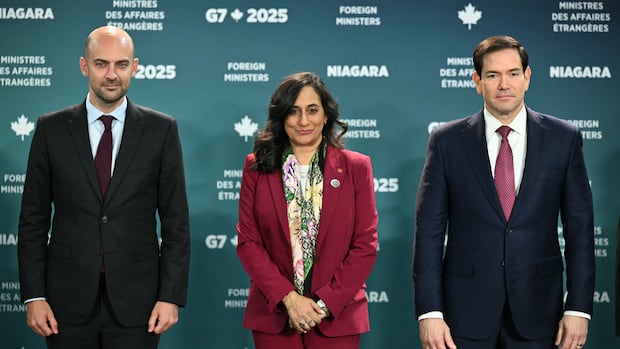Top Stories
French Foreign Minister Condemns U.S. Boat Strikes, Claims Violations

UPDATE: French Foreign Minister Jean-Noel Barrot has issued a striking condemnation of the United States’ recent military actions in the Caribbean, asserting they violate international law. The remarks were made during the G7 Summit in Niagara-on-the-Lake, Ontario, and mark a pivotal moment in international relations, as tensions escalate over U.S. strikes that have reportedly killed at least 76 individuals since early September.
The U.S. military has conducted over 19 strikes against suspected drug vessels in the Caribbean and off Latin America’s Pacific coasts. Barrot emphasized France’s concerns, stating, “We have observed with concern the military operations in the Caribbean region, because they violate international law.” He underscored the potential threats these actions pose to French citizens residing in the region.
Barrot’s comments come on the heels of a CNN report alleging that the United Kingdom has suspended intelligence sharing with the U.S. from its Caribbean assets, raising alarms over the implications of involvement in these deadly operations. Colombian President Gustavo Petro also reacted, declaring he had halted intelligence collaboration with the U.S. until the strikes cease, arguing that “the fight against drugs must be subordinated to the human rights of the Caribbean people.”
Earlier this fall, Petro accused U.S. officials of murder, claiming that a mid-September strike killed an innocent Colombian fisherman. The U.S. has justified its actions under the War Powers Act, classifying the situation as a “non-international armed conflict” and labeling those on the targeted vessels as enemy combatants. This controversial approach has drawn criticism from various corners, including a recent Washington Post editorial that warned the U.S. risks alienating critical allies.
As the situation develops, the American aircraft carrier USS Gerald R. Ford is now positioned near Venezuela, intensifying concerns of military escalation in the region. U.S. military officials have stated that this buildup includes eight warships and nuclear submarines, further complicating the already tense environment.
The response from Canada has been notably muted, with Prime Minister Mark Carney and other officials remaining silent on the strikes. A Global Affairs spokesperson confirmed Canada is monitoring U.S. military actions but reiterated that Canada is not involved in these operations.
Critics within the U.S., including California Governor Gavin Newsom, have voiced their disapproval during discussions at the COP30 climate summit in Brazil. Newsom described the strikes as “chilling” and questioned the adherence to due process and the rule of law.
The international community is closely watching as these events unfold. With the potential for further escalation in the Caribbean and implications for drug policy and human rights, the urgency for dialogue and resolution is paramount. As of now, the future of U.S. military operations in the region remains uncertain, with calls for accountability growing louder.
Stay tuned as this story develops, and share your thoughts on the implications of U.S. actions in the Caribbean.
-

 Politics6 days ago
Politics6 days agoSecwepemc First Nation Seeks Aboriginal Title Over Kamloops Area
-

 World4 months ago
World4 months agoScientists Unearth Ancient Antarctic Ice to Unlock Climate Secrets
-

 Entertainment4 months ago
Entertainment4 months agoTrump and McCormick to Announce $70 Billion Energy Investments
-

 Lifestyle4 months ago
Lifestyle4 months agoTransLink Launches Food Truck Program to Boost Revenue in Vancouver
-

 Science4 months ago
Science4 months agoFour Astronauts Return to Earth After International Space Station Mission
-

 Technology3 months ago
Technology3 months agoApple Notes Enhances Functionality with Markdown Support in macOS 26
-

 Top Stories1 month ago
Top Stories1 month agoUrgent Update: Fatal Crash on Highway 99 Claims Life of Pitt Meadows Man
-

 Sports4 months ago
Sports4 months agoSearch Underway for Missing Hunter Amid Hokkaido Bear Emergency
-

 Politics3 months ago
Politics3 months agoUkrainian Tennis Star Elina Svitolina Faces Death Threats Online
-

 Politics4 months ago
Politics4 months agoCarney Engages First Nations Leaders at Development Law Summit
-

 Technology4 months ago
Technology4 months agoFrosthaven Launches Early Access on July 31, 2025
-

 Top Stories3 weeks ago
Top Stories3 weeks agoFamily Remembers Beverley Rowbotham 25 Years After Murder


















